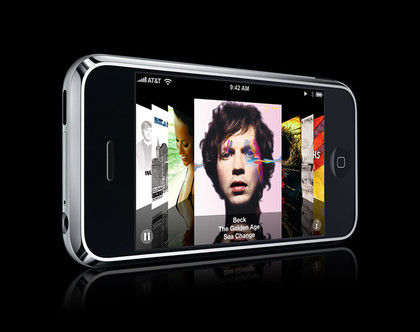Apple patents glasses-free 3D projector
The iPhone giant wants to be a 3D innovator
Apple has patented a glasses-free (auto-stereoscopic) 3D display system which would let viewers see pictures in 3D regardless of where they were sitting.
The latest patent from the Mac and iPhone giant suggests that Steve Jobs and co. are keen to be innovators and market leaders in the forthcoming shift to 3D entertainment.

Apple has been issued with a US patent for a display system that would let numerous viewers see a high-quality 3D image projected on a screen without 3D glasses.
The home computing industry is very keen to follow the success of 3D in movie theatres over the last year or two, with a number of leading laptop manufacturers such as Acer, Asus, Toshiba and others already actively promoting their 3D notebooks this Christmas season.
Consumer tech and computing companies clearly hope that the popularity of massive 3D movies such as James Cameron's Avatar and the sublime Toy Story 3 will inspire consumers to buy new 3D TVs and laptops this coming Christmas.
Hence, Apple's latest U.S. patent 7,843,449, awarded by the US patent office this week, which details an auto-stereoscopic 3D display system.
One of the biggest hurdles to the adoption of 3D TV and computing in the home is seen to be the need to wear specialised (and often expensive) 3D glasses.
Sign up for breaking news, reviews, opinion, top tech deals, and more.
Thus, companies such as Apple are keen to develop workable 3D displays that don't require you to don specs. Much like Nintendo is hoping its forthcoming 3DS console will capture the imagination of the gaming market when it launches next Easter.
Apple's patent describes using a special reflective screen with a rippled texture which will create the auto-stereoscopic projection system, projecting different images to each eye without the need for 3D glasses.
Apple also suggests it can project multiple images to different points on the ripples for multiple users to view at the same time.
